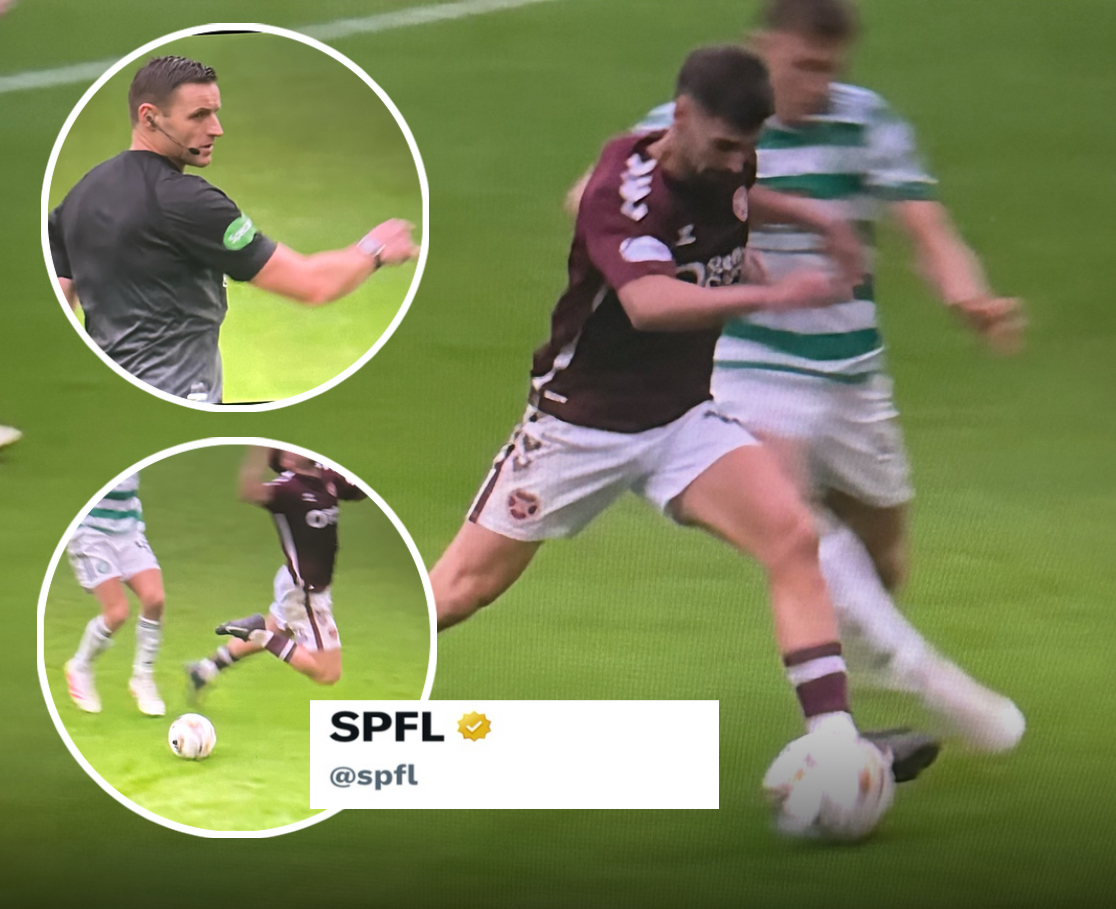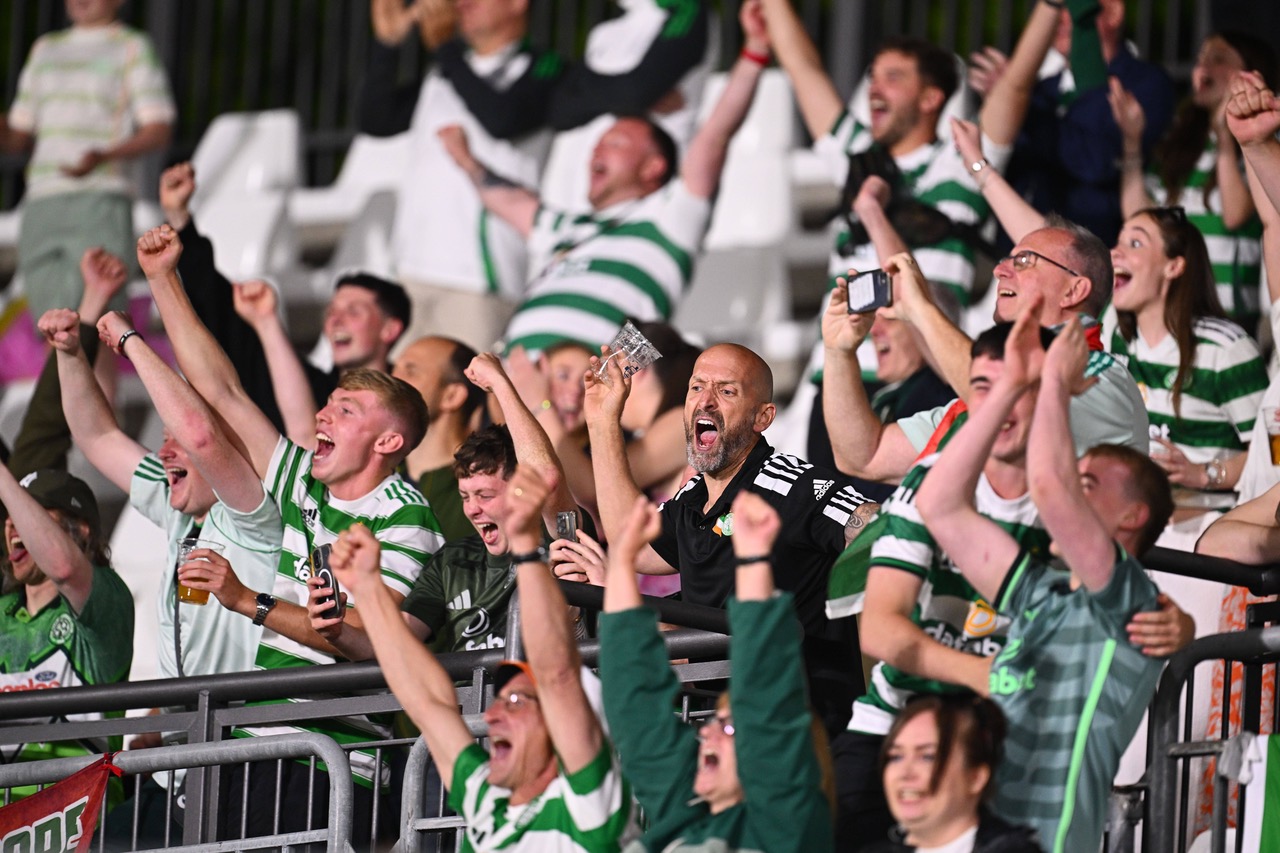SPFL RESPONDS TO CELTIC STATEMENT ON SOCIAL MEDIA AFTER THEY BITTERLY COMPLAINED ABOUT REFEREE DECISIONS
Sunday’s Tynecastle showdown — a 3-1 victory for Heart of Midlothian over Celtic — will be remembered for more than the result. The game itself produced the sort of drama that fuels Scottish football conversation for weeks: a late penalty that sealed Hearts’ win, and an immediate backlash from Celtic — who publicly disputed the decision and followed up with an official statement complaining about refereeing and VAR decisions. The Scottish Professional Football League’s social channels then stepped into the row, posting a response to Celtic’s statement and setting off a fresh wave of debate about referees, procedure and the place of public criticism in the modern game.
Below I set out the facts as they are known from the match, explain the footballing and regulatory context, examine the arguments made by the two sides, review how supporters and pundits are reacting, and outline likely next steps — plus why this episode matters beyond one fixture.
The incident, simply stated
At the point the controversy crystallised, Hearts held a narrow lead. They were awarded a penalty that extended the lead to 3–1 — a kick that, in practical terms, ended Celtic’s hopes of a comeback on the day. Celtic subsequently labelled the decision contentious and issued a formal statement expressing “serious concerns” about the match officials’ handling of the incident (and, in some parts of the statement, broader refereeing decisions associated with the game). The SPFL then posted a response on its social media channels addressing Celtic’s statement.
The sequence (goal/penalty → Celtic statement → SPFL social-media reply) is now the focus. Supporters, club officials, pundits and neutral observers have all quickly taken sides — which is to be expected in a rivalry that is one of the sport’s hottest topics in Scotland.
Why a single penalty can become a national story
Football is a low-margin game. In the modern era, where VAR, precise lines and frame-by-frame broadcast replay exist, a single decision can swing a title race, trigger appeals, shape reputations and even result in internal reviews of officiating standards. That’s doubly true in games involving clubs with large followings and high expectations; a decision that costs one of those clubs points will be examined, dissected and debated at length.
When a club as prominent as Celtic publicly questions a referee or the VAR process, it does two things: first, it puts pressure on the governing bodies to respond; second, it solidifies and amplifies supporters’ feelings of grievance (or vindication, depending on perspective). Governing bodies — in this case the SPFL and the refereeing authorities — are in a difficult position. They must defend the integrity of the officiating process while also demonstrating transparency and, where appropriate, acknowledging mistakes.
The arguments each side is making
Celtic’s position
Based on the club statement and follow-up commentary from supporters, Celtic’s main points are procedural and substantive:
- Procedural: Celtic argue that the process (how the incident was reviewed, how quickly decisions were communicated, the clarity of the officials’ reasoning) was unsatisfactory. The club’s statement framed the issue as part of a pattern of decisions that have disadvantaged them and asked for greater clarity and action.
- Substantive: On the incident itself, Celtic maintain that the penalty awarded was incorrect — that either the contact did not meet the threshold for a spot-kick, that the ball struck the wrong area, or that the referee/VAR misapplied the laws of the game as written or interpreted.
These complaints are familiar from many high-profile VAR-related disputes: clubs often complain that the spirit of the rule was not applied consistently, or that similar incidents in other matches were judged differently.
SPFL’s position
The league’s response on social media — concise and targeted — emphasised a different set of priorities:
- Defence of process: The SPFL reinforced that refereeing decisions are made by match officials who review the available evidence and apply the laws of the game. When those decisions are questioned publicly, the governing body will defend the process and, where necessary, provide clarification.
- Limits of public criticism: Crucially, organisations such as the SPFL generally warn clubs about escalating public criticism of match officials. Repeated public attacks can undermine confidence in referees and the leagues’ governance structures, and can lead to investigations, fines or sanctions if the criticism contravenes codes of conduct.
Importantly, the SPFL can also use its social platforms to remind supporters about the availability of formal review processes (appeals, match reports, Key Match Incident panels), underlining that public statements are not the only route to redress.
The wider context: VAR, interpretation and precedent
VAR was introduced to reduce clear and obvious error, but in practice it has sometimes amplified disagreements because it focuses attention tightly on single frames or minute touches. The laws of the game — particularly on handball, contact and simulation — remain open to interpretation. That is why pundits and ex-referees frequently disagree about the same incident.
History matters, too. Fans point to perceived inconsistencies across different matches, seasons and competitions. Clubs, media and the public expect transparency: why was that handball given as a penalty in one match and not in another? Why did the VAR intervene in some cases and not in others? Without consistent and well-explained standards, every controversial call becomes another data point in a suspicion narrative.
Reactions: fans, pundits and managers
As soon as the SPFL posted its reply, social media lit up. Celtic supporters argued the club was simply defending its interests and exposing a pattern of poor officiating; Hearts fans framed Celtic’s statement as sour grapes in the face of a convincing defeat. Pundits were divided: some backed the officials, saying that the on-field referee has the best vantage point and that VAR is there only to correct “clear and obvious” errors; others urged for greater clarity and criticised the culture of post-match statements by clubs which they say inflame, rather than settle, disputes.
Managers rarely help calm things down in the immediate aftermath — emotions run high, and coaches may either defend their players and officials or add fuel to the fire depending on their temperament and tactical interests.
Where this can go from here
- Formal review or appeal: Celtic could pursue (if they haven’t already) formal routes such as lodging a complaint with the refereeing body or calling for a Key Match Incident review. Those processes can be slow and their findings sometimes opaque, but they are the formal means for redress.
- Disciplinary action for comments: If either the club’s statement or the SPFL’s response is found to breach codes of conduct — for instance, by being disparaging or inflammatory about match officials — disciplinary action is possible. Leagues typically want public criticism to be measured and substantiated.
- Policy/communication changes: One productive outcome would be clearer, more timely communication about why decisions were made. Leagues in other countries have experimented with more detailed post-match explanations or with audio releases from VAR rooms. If the SPFL and referees respond to the row by committing to better transparency, that could be a net positive.
- Fan and media debate: Short of institutional change, the incident will remain another flashpoint for debate among supporters and the media. That debate can be healthy — it keeps pressure on standards — but it becomes toxic when it sows distrust in the system that governs competition.
Why this matters beyond Tynecastle
At stake is more than a single result. Public disputes between a major club and the league damage public trust in officiating. They also set precedents for future conduct. If clubs repeatedly use social media statements to attack officials, leagues will have to respond — either by imposing sanctions or by opening up their processes to increased scrutiny.
There is also a competitive equity issue. When decisions are perceived to be inconsistent, the integrity of competitions is questioned. That undermines sponsorship, broadcast relationships and spectator engagement — the lifeblood of modern football.
Final thoughts
This episode — a penalty, a protest, a league reply — captures the contemporary tensions of professional football: the desire for absolute fairness, the limits of human decision-making even with technological assistance, and the rapid amplification power of social media. All parties have a stake in ensuring disputes are handled in ways that are transparent, fair and ultimately constructive.
Celtic’s complaint and the SPFL’s social-media response will echo in boardrooms and pundit panels for weeks. The sensible route forward is procedural: use formal reviews to test the merits, improve communication so fans understand decisions (or the reasons for not changing them), and temper public rhetoric so that the focus returns to the sport on the pitch.
At the end of the day, referees and VAR officials are part of the same game everyone loves. They deserve fair scrutiny — and the system that governs them must be strong enough to take it. Equally, clubs must remember that public statements carry weight: made hastily, they inflame; made carefully, they can catalyse positive change. The challenge now is for all parties to convert heat into constructive reform rather than letting this become another bitter episode in a long line of controversies.








Post Comment